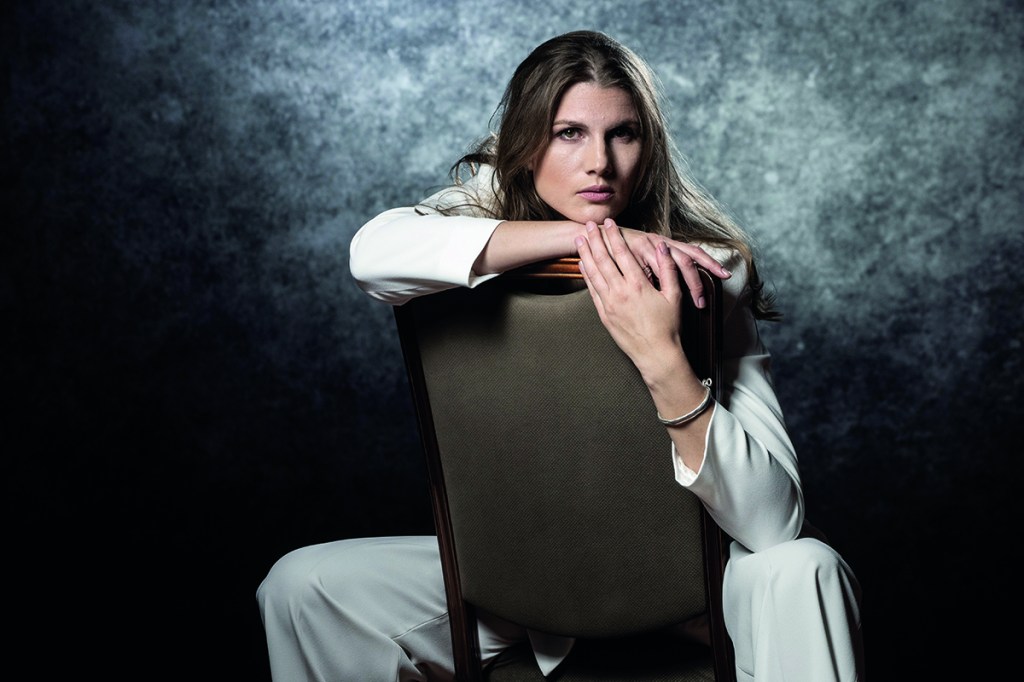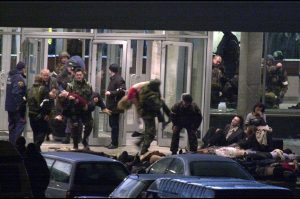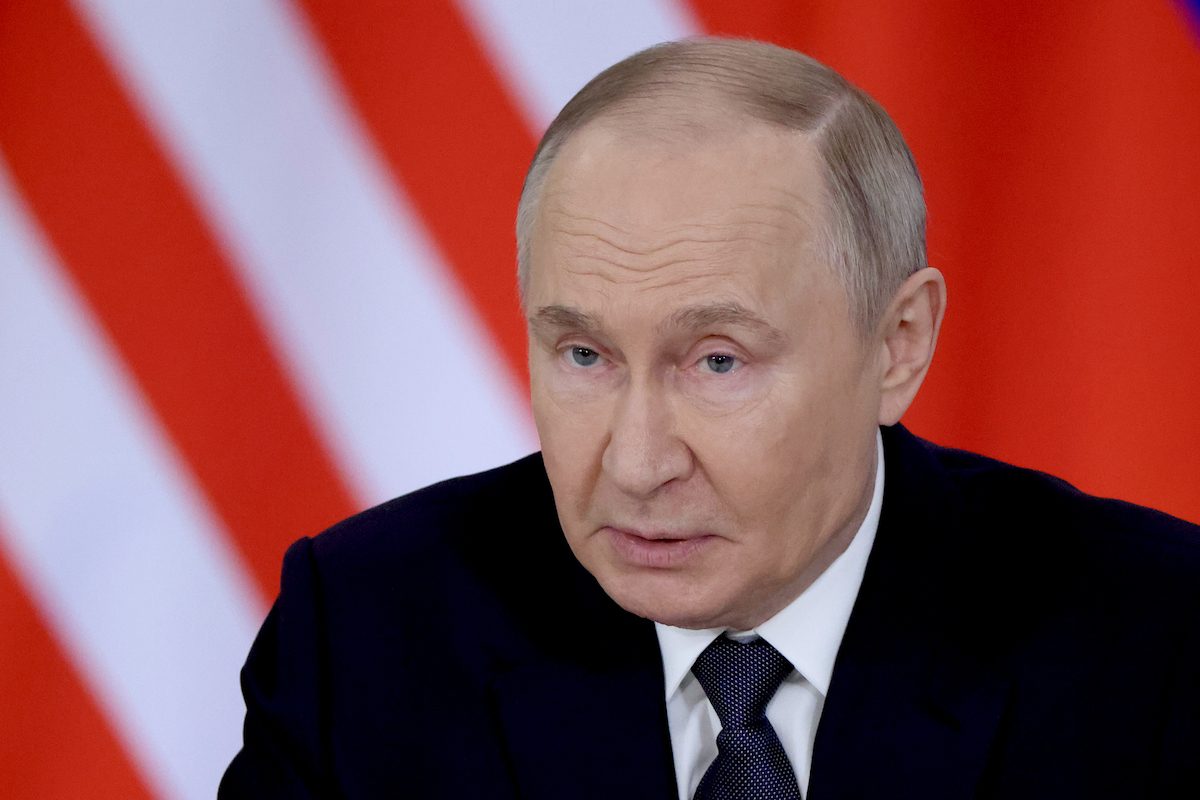A deadly viral pandemic, viciously infectious, inflicting rapid death without fear or favor: gosh, where on earth did the makers of To the Lake get that idea?
Not from the Chinese coronavirus, obviously. For one thing, this Russian series was made last year, when COVID-19 was still but an evil glint in Anthony Fauci’s eye. And for another, look around: do you see people dropping dead in the streets, as they should be, if this thing were living up to its inflated reputation as our Spanish flu?
All that aside, the timing could scarcely be more perfect for this hugely exciting, gripping and involving series about a disparate group of family and friends struggling to survive in lawless, brutal, post-outbreak Russia. A bit like the classic 1970s BBC series Survivors — and its Noughties update, also called Survivors — the series doesn’t dwell too much on the deadly virus itself. Rather the virus is the MacGuffin which launches into possibly my all-time favorite TV genre: the ‘cozy catastrophe’.
The term was originally devised by sci-fi writer Brian Aldiss when he was trying to be rude about John Wyndham’s brilliantly enjoyable Day of the Triffids. I cannot summarize it better than this description from the TV Tropes website: ‘The end of the world as we know it has arrived and…our heroes feel fine. Sure, it’s a pity for all those billions who just perished at the hands of super-plague/aliens/nuclear war. But for our safe, middle-class heroes, it means a chance to quit their day job, steal expensive cars without feeling guilty, sleep in a five-star hotel for free and relax while the world falls apart around them.’
What makes this one more intriguing than most is that, being Russian, the stock characters are quite different from the ones you’d find in a western version. Enter alcoholic granddad loosing off AK-47 rounds under the influence of industrial hooch; pretty but uber-bitchy jealous ex-wife Irina (played by Maryana Spivak, whom you may have seen as Malotru’s sexy Russian girlfriend in Le Bureau); rich, vulgar, fat-faced braggart with connections to the security services, and his pregnant ex-stripper girlfriend; crazed, blonde, alcoholic, psycho-bitch nympho teenager with amazing breasts (my favorite character; yours too, probably, if you are male and sentient); autistic techno-geek boy; and so on.
On their long journey to safety at a lake in the Karelia region, they travel in convoy, encountering the kind of problems a western scriptwriter probably wouldn’t have thought of. Snow and skiddy roads, obviously, but also security forces gone bad who now want to kill or rape you rather than save you; gangs of deranged peasants with axes and monkey wrenches; backwoods houses containing terrifying, glassy-eyed zombie-like urchins gorging on what could be human flesh.
It’s not quite true that all foreign-language TV dramas knock the spots off anything American- or British-made. For example, the French series La Révolution (also on Netflix), which I thought I was going to love because it’s an alternative history of 1789 also involving a virus, this one causing the aristocracy to murder peasants, proved so turgid and predictably bien-pensant that I abandoned it after the first episode.
But it’s generally the case that non-English-speaking dramas have at least two huge advantages over our domestic ones. First, they have the charm of novelty: all those unfamiliar social customs, all that strange scenery, the half-understood politics and historical context. Second, they tend for some reason — possibly because Big Tech’s censoring algorithms consider the foreign language world less of a priority — to be much less infuriatingly precious and woke.
So, for example, nympho teen girl Polina (Viktoriya Agalakova) gets away with the kind of naughty stuff which would be probably considered far too titillating and licentious in any post-2000 US drama. And men, it is generally understood in Russia, as well as in Germany (Babylon Berlin), Israel (Fauda), France (Le Bureau) and Italy (Gomorrah), are still allowed to behave like men while women still behave in a manner traditionally associated with women. Sure, this doesn’t rule out girls occasionally being handy at meting out violence, but this is presented to us as a surprising, uncharacteristic thing rather than, as in the emasculated West, one of the many, many things that girls do better than men because they are so empowered and omnicompetent and there it is.
Also, because they don’t come from a staid, hidebound system overburdened with rules on diversity casting, political acceptability, etc., they take more risks. Pavel Kostomarov’s direction is playful, inventive, sometimes Twin Peaks weird. The scenarios and characters — the lonely, decent (or is he?) and mute snowplow driver; the sex-maniac uncle and his unworldly medic nephew in their crappy van full of supplies; the long-faded blonde beauty in her isolated karaoke bar dancing alone to her favorite love song — are odd and unexpected. This is how great TV used to be but so often isn’t these days. Well done, Russkis: we used to fear you as a deadly threat, but now you’ve come to rescue our culture instead.
This article was originally published in The Spectator’s December 2020 US edition.

























